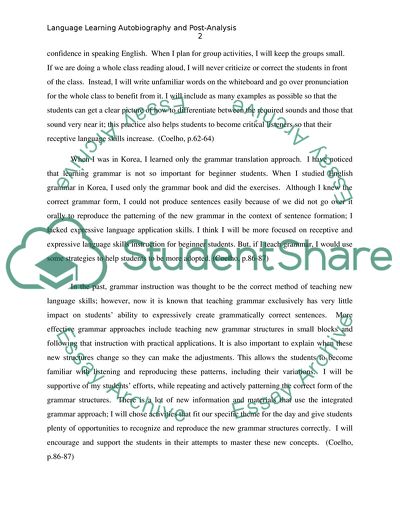Cite this document
(The Language Learning Autobiography Essay Example | Topics and Well Written Essays - 2500 words - 2, n.d.)
The Language Learning Autobiography Essay Example | Topics and Well Written Essays - 2500 words - 2. https://studentshare.org/education/1750770-autobiography-about-how-i-will-teach-esl-students-according-to-my-language-experience
The Language Learning Autobiography Essay Example | Topics and Well Written Essays - 2500 words - 2. https://studentshare.org/education/1750770-autobiography-about-how-i-will-teach-esl-students-according-to-my-language-experience
(The Language Learning Autobiography Essay Example | Topics and Well Written Essays - 2500 Words - 2)
The Language Learning Autobiography Essay Example | Topics and Well Written Essays - 2500 Words - 2. https://studentshare.org/education/1750770-autobiography-about-how-i-will-teach-esl-students-according-to-my-language-experience.
The Language Learning Autobiography Essay Example | Topics and Well Written Essays - 2500 Words - 2. https://studentshare.org/education/1750770-autobiography-about-how-i-will-teach-esl-students-according-to-my-language-experience.
“The Language Learning Autobiography Essay Example | Topics and Well Written Essays - 2500 Words - 2”. https://studentshare.org/education/1750770-autobiography-about-how-i-will-teach-esl-students-according-to-my-language-experience.


